PHUKET: The moment when Robert Borland knew he was on a losing streak came as One-Two-Go holiday flight 269 descended too rapidly towards the tarmac at Phuket International Airport.
The plane slammed into the ground and broke up as it slid off the runway into an embankment that really had no place to be at any airport.
It was September 16, 2007. Five years ago on Sunday. A day Phuket should never forget.
Ninety of those on the flight, many of them holidaymakers bound for Thailand's top tropical island, were killed. Robert Borland, then 48, was one of 40 who survived.
Passengers on the brief hop from Bangkok included Thais, Australians, an Austrian, Britons, a Canadian, Dutch, Germans, Iranians, Irish, Israelis, Swedes and an Italian.
Mr Borland made it to the threshhold of the exit above the shattered and burning aircraft's wing. Then he found he could move no further. His trousers were aflame.
All travellers, whether in the air or on land or sea, are gamblers. The dice rolled again. Robert Borland was in luck.
A fellow passenger, a Thai in a yellow t-shirt who appears to have never heard the phrase ''every man for himself,'' helped the burly Borland out of the deathly fuselage, onto the broken wing, and back into life.
For Mr Borland, a straight-shooting Australian who holds an immensely positive outlook, looking forward is preferrable to looking back.
There have been moments, though, when the memories of the One-Two-Go crash swirl powerfully and become overwhelming.
''I remember being at a performance by a fire dancer,'' he said. ''Everything was fine until I smelled the kerosene . . .''
Given the choice of going back to Perth or to Bangkok for treatment for his severe burns, Mr Borland opted as a resident expat to stay on Phuket.
''The treatment at Bangkok Hospital Phuket was superb,'' he said this week. ''There are not many hospitals anywhere that can treat open wounds for three months without an infection.
''And the surgeon, bless him, came to visit me every day for 99 days. Those guys were absolutely brilliant.''
So was Mr Borland's mother, Muriel, a former Perth nurse and taxi driver, who came to Phuket and stayed to make sure her son's recovery was complete.
Mr Borland chose to stay on Phuket because he loved the place but 18 months ago, because the place he loved had changed, he upped and moved to Pattaya.
At that point, he threw away the charred trousers he had kept as a reminder of the One-Two-Go crash.
''What was I going to do with them?'' he says. ''But I did kept the Superman suit that they had me wear to help heal the burns.''
Hold onto the positive, throw out the negative. Move on.
Mr Borland was back flying quickly and at one stage even found himself a passenger on another One-Two-Go flight.
To him, the long delayed official report into the the crash ''scattered the blame everywhere. The pilot under stress, the weather, some equipment malfunctioning . . .''
His message is that fliers should always wear clothing to protect them just in case the worst happens on a flight. And socks with shoes.
''I shudder when I see people in an aircraft wearing next-to-nothing and flip-flops,'' he said. ''In a crisis, your feet become essential to escape.''
Today when we telephoned Paiboon Phaphan, the air-conditioner mechanic who turned back to save Robert Borland, he told us that he too had moved from Phuket.
He planned to call Mr Borland. And he, like Robert Borland, was keen to remind us that aircraft remain safer than any other form of transport.
There will be no commemorative service for the victims of Flight 269 this Sunday. But they have not been forgotten, and they, along with the lessons of the crash, should never be forgotten.
The plane slammed into the ground and broke up as it slid off the runway into an embankment that really had no place to be at any airport.
It was September 16, 2007. Five years ago on Sunday. A day Phuket should never forget.
Ninety of those on the flight, many of them holidaymakers bound for Thailand's top tropical island, were killed. Robert Borland, then 48, was one of 40 who survived.
Passengers on the brief hop from Bangkok included Thais, Australians, an Austrian, Britons, a Canadian, Dutch, Germans, Iranians, Irish, Israelis, Swedes and an Italian.
Mr Borland made it to the threshhold of the exit above the shattered and burning aircraft's wing. Then he found he could move no further. His trousers were aflame.
All travellers, whether in the air or on land or sea, are gamblers. The dice rolled again. Robert Borland was in luck.
A fellow passenger, a Thai in a yellow t-shirt who appears to have never heard the phrase ''every man for himself,'' helped the burly Borland out of the deathly fuselage, onto the broken wing, and back into life.
For Mr Borland, a straight-shooting Australian who holds an immensely positive outlook, looking forward is preferrable to looking back.
There have been moments, though, when the memories of the One-Two-Go crash swirl powerfully and become overwhelming.
''I remember being at a performance by a fire dancer,'' he said. ''Everything was fine until I smelled the kerosene . . .''
Given the choice of going back to Perth or to Bangkok for treatment for his severe burns, Mr Borland opted as a resident expat to stay on Phuket.
''The treatment at Bangkok Hospital Phuket was superb,'' he said this week. ''There are not many hospitals anywhere that can treat open wounds for three months without an infection.
''And the surgeon, bless him, came to visit me every day for 99 days. Those guys were absolutely brilliant.''
So was Mr Borland's mother, Muriel, a former Perth nurse and taxi driver, who came to Phuket and stayed to make sure her son's recovery was complete.
Mr Borland chose to stay on Phuket because he loved the place but 18 months ago, because the place he loved had changed, he upped and moved to Pattaya.
At that point, he threw away the charred trousers he had kept as a reminder of the One-Two-Go crash.
''What was I going to do with them?'' he says. ''But I did kept the Superman suit that they had me wear to help heal the burns.''
Hold onto the positive, throw out the negative. Move on.
Mr Borland was back flying quickly and at one stage even found himself a passenger on another One-Two-Go flight.
To him, the long delayed official report into the the crash ''scattered the blame everywhere. The pilot under stress, the weather, some equipment malfunctioning . . .''
His message is that fliers should always wear clothing to protect them just in case the worst happens on a flight. And socks with shoes.
''I shudder when I see people in an aircraft wearing next-to-nothing and flip-flops,'' he said. ''In a crisis, your feet become essential to escape.''
Today when we telephoned Paiboon Phaphan, the air-conditioner mechanic who turned back to save Robert Borland, he told us that he too had moved from Phuket.
He planned to call Mr Borland. And he, like Robert Borland, was keen to remind us that aircraft remain safer than any other form of transport.
There will be no commemorative service for the victims of Flight 269 this Sunday. But they have not been forgotten, and they, along with the lessons of the crash, should never be forgotten.

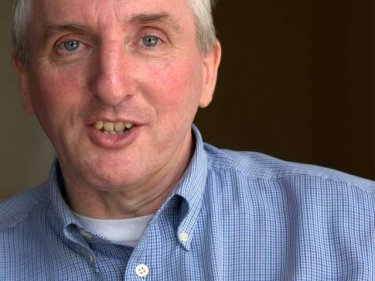
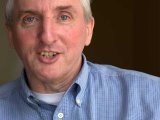
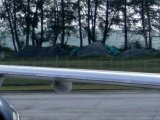
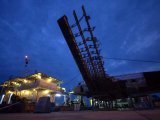
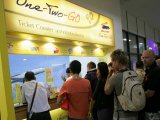
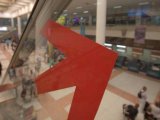
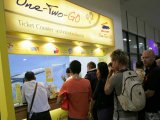
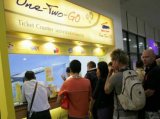
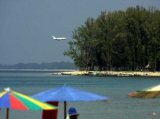




Exellent report... It will never be forgotten... Thanks Ed...
Posted by Chris on September 15, 2012 12:39